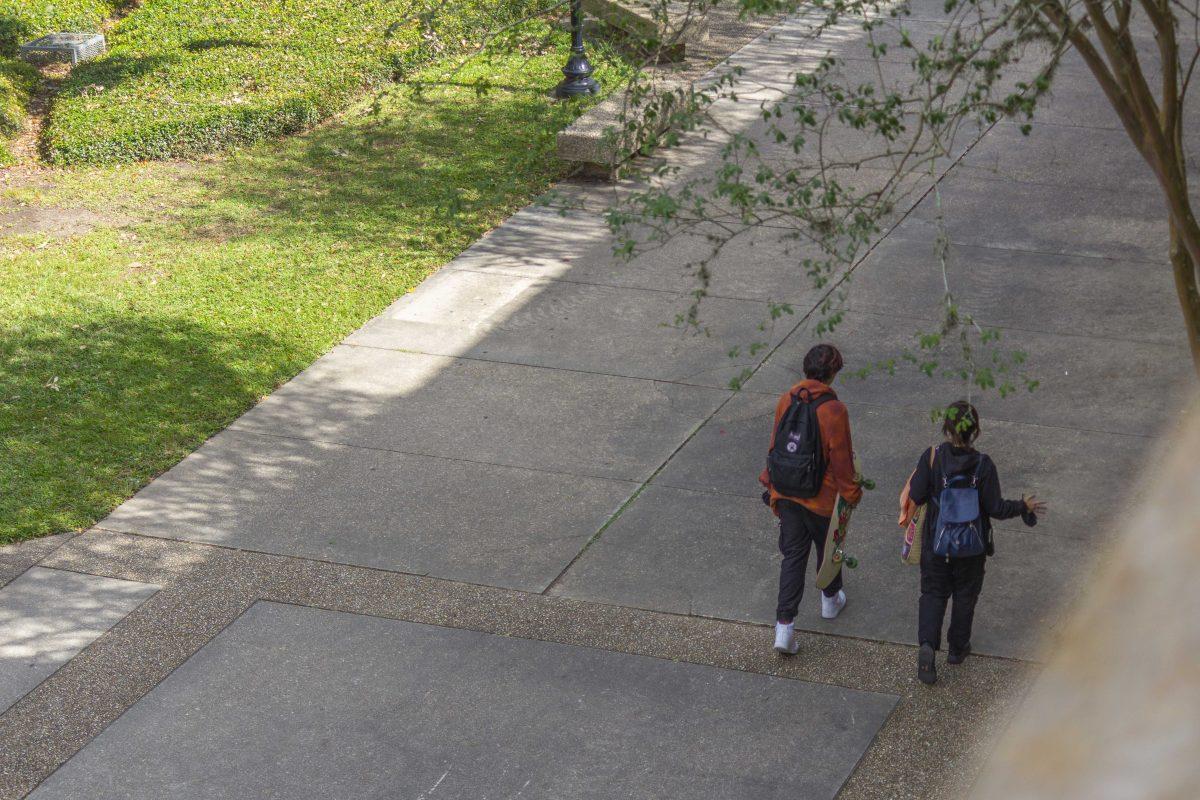Biological sciences freshman Ella Cochran was determined to go to college. Despite being the valedictorian of her high school class, she still found the journey of coming to LSU scary and uncertain because no one in her family had ever attended a four-year college.
Like many other students, Cochran is first generation – the first in her family to attend college. First generation students often struggle with feelings of unfamiliarity and doubt, as they don’t have immediate family they can turn to for guidance.
“As a first generation student, it often feels like you’re trying to navigate in the dark because you don’t know what to expect,” Cochran said. “For the college application process, I had no clue what I was doing.”
Even though Cochran talked with LSU advisors, she still finds certain parts of college difficult to understand, like scheduling her courses.
“I didn’t know how many hours were in a full semester, and that’s such a simple thing, but I just didn’t know it,” Cochran said.
Cochran had to adjust to LSU without any previous knowledge of college, and while her parents encourage her to further her education, she says they still don’t understand every aspect of it.
“For [my family, college] is kind of like this mystified boarding school… they don’t know the stressfulness of college,” Cochran said. “I’ll be talking about how stressful exams are, and there’s only to a certain extent that they can understand.”
Architecture senior Benito Juárez is the son of Mexican immigrants and the first in his family to attend college. Juárez found that financing his education was the most challenging part of preparing for college.
“Each semester, that financial pressure refreshes,” Juárez said, noting that completing the FAFSA was “one of the scariest things” he’s ever had to do.
To overcome the financial burden of attending a university, Juárez works and relies on scholarships. He credits his determination to earn his degree to his parents, who support him as much as they can.
“My parents have always encouraged an education… they didn’t receive an education, but they wanted that for me so I didn’t have to struggle like they did,” Juárez said.
Juárez believes that being the first in his family to finish college will have an effect on future generations in his family.
“I’m even feeling the effects now… there are younger cousins and family friends who are coming to me for help and advice, which is something I was missing when I was growing up,” Juárez said.
Environmental management systems freshman Layla Harmon also experienced the challenges of being a first generation student.
“It’s definitely hard not having somebody close to you that’s been through the college process,” Harmon said. “It’s a lot of doubt in my mind, with all of the decisions I’m making.”
While students whose family went to college have more guidance in the college process, Harmon often feels like she has no one to turn to.
“When my friend has a problem… she can ask her mom or dad because they’ve been through that, but with parents who haven’t been through college, they don’t know what to do. I can’t get advice,” Harmon said.
Harmon found that utilizing programs specifically for first generation students was useful in helping her prepare for college, such as Questbridge and Matriculate, which offer college advising programs for first generation students.
Harmon also utilizes university-sponsored programs. When Harmon completed Stripes, a four-day orientation for freshman students, she was given a Stripes leader who she continues to talk to for college advice. She’s found support through the Center for Academic Success and tutoring in the library, which she says helped her greatly.
“[Tutoring] is free, it’s easy to schedule. There’s so many resources here, so many clubs to get in contact with – I feel like I haven’t even tapped into all the resources I could,” Harmon said.
LSU has other resources available for supporting students. Recently, the Olinde Career Center created a First-Gen Career Mentor Program that provides career resources to first generation students and connects them with LSU alumni who went through the same experiences.
Through the program, students spend four months participating in group professional development seminars where they learn about leadership, financial literacy, networking, and other professional expectations and have one-on-one meetings with a mentor who works in their field.
Last year, the program was held virtually and 34 students participated. Applications for the next sessions are currently open to all first generation undergraduate students.
Blake Winchell, the Associate Director for Student Services in the Olinde Career Center, hopes to continue expanding the program.
“Who better to help [first generation students] out with [college] than people who have done it before?” Winchell said.
LSU also offers the Ronald E. Mcnair Research Scholars Program, which connects first generation students with research opportunities.
“When you provide smaller level interactions… they end up having a much wider success and impact than if we hope [first generation students] just figure it out,” Winchell said.
While students who are the first in their family to attend college may feel stress or self-doubt at times, Harmon encourages them to keep persevering.
“Every first gen experience is unique,” Harmon said. “If you’re a first gen student, pat yourself on the back… keep going, keep pushing.”





